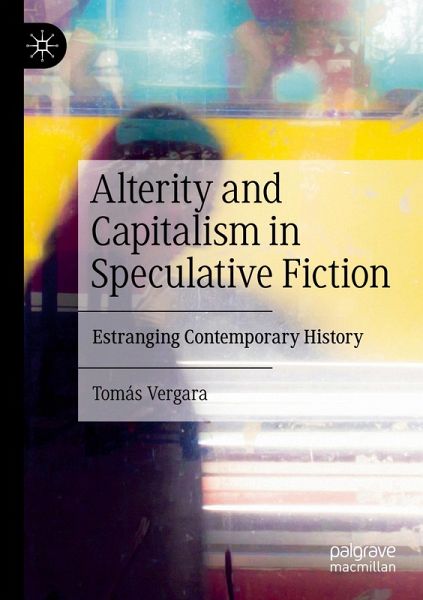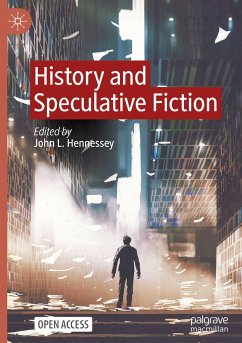
Alterity and Capitalism in Speculative Fiction
Estranging Contemporary History

PAYBACK Punkte
46 °P sammeln!
Speculative fiction has been traditionally studied in Marxist literary criticism, following Darko Suvin's paradigmatic model of science fiction, according to a hierarchical division of its multiple subgenres in terms of their assumed inherent political value. By drawing on an alternative genealogy of Marxist criticism, this book presents a non-hierarchical understanding of the estrangement connecting all varieties of speculative fiction, outlining the political potential shared across the spectrum of speculative fiction, along with the specific narrative strategies by which it critically engag...
Speculative fiction has been traditionally studied in Marxist literary criticism, following Darko Suvin's paradigmatic model of science fiction, according to a hierarchical division of its multiple subgenres in terms of their assumed inherent political value. By drawing on an alternative genealogy of Marxist criticism, this book presents a non-hierarchical understanding of the estrangement connecting all varieties of speculative fiction, outlining the political potential shared across the spectrum of speculative fiction, along with the specific narrative strategies by which it critically engages with its historical context of production. This study's main point of contention is that speculative fiction performs an estrangement effect on historical reality that can potentially render visible the role of fantasies in the organisation of capitalist social practice. This narrative effect enables an estranged perspective by which the novel interprets and conceptualises historical reality ina totalising manner.












